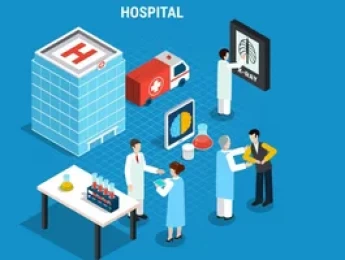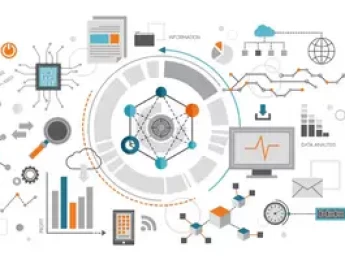Effective hospital management is vital in ensuring the hospital's success in its goals and purpose. Management ensures that all departments are working collaboratively and that all patient needs are being met. With productive management, it is possible for a hospital to provide its services in an ideal manner, and patient lives would be put to a detriment.
One factor essential for a hospital to meet expectations is department management. Hospitals house a large number of departments, and these need to work together collaboratively to ensure all services are being provided to the highest standard and that all information regarding patients is communicated effectively so as not to delay any aspect of their care.
Risks are prevalent throughout any hospital, and it is the management’s responsibility to ensure all risks are identified and prevented through a variety of methods. Furthermore, all health and safety procedures should be completely understood by all medical staff and compliant with all relevant health and safety laws and regulations.
Upon completion of this course, participants will be able to:
- Understand the vitality of incorporating best practice methods into hospital management.
- Facilitate a cooperative relationship between governing boards, medical staff, and department management.
- Organise and control varying services in alignment with the hospital board’s demands, wants and regulations.
- Develop and implement programs and policies relating to patient services, quality assurance, PR, and department functions.
- Oversee the performance of personnel and departments and create daily reports detailing this.
- Ensure all departments have access to necessary resources at all times.
- Manage and control all potential risks within the hospital through risk assessment and risk management methods.
This course is designed for anyone in a hospital setting who is responsible for its management and improvement. It would be most beneficial for:
- Operations Managers
- Clinical Directors
- Senior Executives
- Heads of Departments
- Pharmaceutical Directors
- Healthcare Facilities Managers
- Risk Managers
This course uses a variety of adult learning styles to aid full understanding and comprehension. Participants will review case studies of established hospitals to highlight key aspects of their management that have led to success and identify potential areas for improvement.
They will participate in various learning methods and exercises, including seminars, group discussions, video materials, and group activities. This assortment of methods guarantees that the participants can fully develop their knowledge of the taught content and practise any practical skills.
Day 5 of each course is reserved for a Q&A session, which may occur off-site. For 10-day courses, this also applies to day 10
Section 1 : What the Patient Sees
- Understanding the importance of delivering outstanding customer service and building rapport with patients.
- Communicating with others through confident body language, tone of voice and concise and empathetic language.
- Maintaining high standards of personal presentations, manners, dress code and medical etiquette for all medical staff.
- Building trust with patients through openness and honesty – exploring ideal methods of delivering bad news.
Section 2 : Managing Important Information
- Identifying what patient records, service reports and documentation is required for each process.
- Collecting important information through documents, records and reports and utilising these to identify successful departments and areas for improvement.
- Establishing a secure system of information storage to protect confidential information relating to the hospital and patients.
- Communicating with other organisations in relation to performance to gain further insight on how to improve services.
Section 3 : Improving Performance
- Taking on the responsibility as a ‘care navigator’ – what does this mean for the hospital?
- Improving performance by prioritising patient needs and employee workload through research and balance.
- Implementing systems to aid in certain processes to remove the element of employee assistance – automated check-ins, electronic record management systems, and more.
- Gathering and analysing performance data from individual departments to understand how it contributes to overall performance.
- Utilising innovative thinking techniques to create, plan and implement performance improvement tactics.
Section 4 : Risk Management
- Conducting risk and hazard assessments to identify all potential risks within the hospital.
- Analysing risk data to create risk management plans detailing all risks, their preventative measures, and corrective actions.
- Ensuring all health and safety policies and procedures are understood by all necessary personnel.
- Guaranteeing all procedures and policies are compliant with health and safety laws and regulations, including HASAWA, COSHH and more.
Section 5 : Managing Medical Staff
- Assisting with all aspects of the recruitment process – advertising, consenting, screening, and enrolment.
- Building positive relationships with employees to gain an understanding of their motivations, skills, strengths, and weaknesses.
- Creating competent teams through understanding their personal competencies and delegating tasks accordingly.
- Comprehending the mental burden of the healthcare industry and implementing methods of stress reduction for employees.
- Providing opportunities for additional coaching, training, and supporting those who wish to seek further accreditation.
Upon successful completion of this training course, delegates will be awarded a Holistique Training Certificate of Completion. For those who attend and complete the online training course, a Holistique Training e-Certificate will be provided.
Holistique Training Certificates are accredited by the British Assessment Council (BAC) and The CPD Certification Service (CPD), and are certified under ISO 9001, ISO 21001, and ISO 29993 standards.
CPD credits for this course are granted by our Certificates and will be reflected on the Holistique Training Certificate of Completion. In accordance with the standards of The CPD Certification Service, one CPD credit is awarded per hour of course attendance. A maximum of 50 CPD credits can be claimed for any single course we currently offer.
- Course Code IND05-109
- Course Format Classroom, Online,
- Duration 5 days












